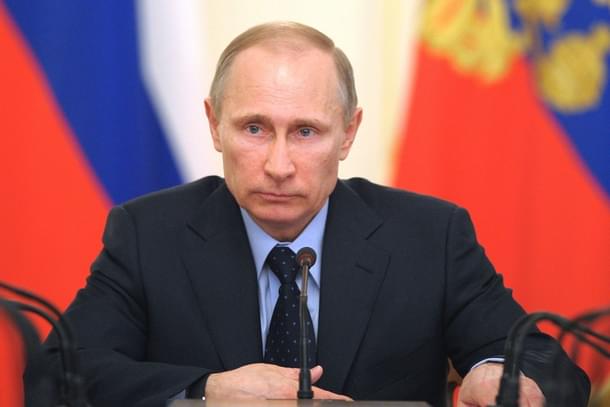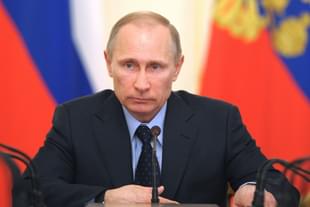News Brief
Vladimir Putin Takes Experimental Intranasal Covid-19 Vaccine Which Russia Is Planning To Export
Bhaswati Guha Majumder
Nov 25, 2021, 03:17 PM | Updated 02:51 PM IST
Save & read from anywhere!
Bookmark stories for easy access on any device or the Swarajya app.


Russian President Vladimir Putin on 24 November stated that he received an experimental nasal Covid-19 vaccine earlier last week. This was his fourth vaccination in total, as a few days ago he took a booster shot.
Putin revealed in televised comments that his antibody levels had declined 6 months after his initial dosage of the Sputnik V vaccination and that he had been re-inoculated. He claimed the booster was given as an injection, followed by a powder sprayed into both nostrils the next day — but the Kremlin later clarified that the vaccine was actually a liquid, not a powder.
On 21 November, Putin received a Russian-made Sputnik Light booster, six months after receiving his second dose of Sputnik V.
Putin offered to test the intranasal vaccine in development by the Gamaleya Center, the manufacturer of Sputnik V.
Later, when the nasal vaccine was given to the Russian president, he said: “That was all — I didn't feel anything. Nothing. Today, after these two procedures, I already did some sport in the morning.”
However, according to Kirill Dmitriev, the president of the Russian Direct Investment Fund (RDIF), which invested in Russia's hallmark vaccine and markets it internationally, the country — which has struggled to bring rising coronavirus infection cases under control in recent weeks — will sell the nasal form to other countries next year.
As per the deputy director of Gamaleya Center, Denis Logunov, the efficacy of the nasal vaccine is still being tested. He said that the nasal vaccine "just needs a little finalising then it will go into clinical tests, and after that, we certainly plan to begin the new vaccine rollout."
Logunov also stated that it is "convenient, painless, with an absolute minimum of side effects".
Nasal sprays are being developed in countries all over the world — including in India — to assist prevent and treat Covid-19, especially since the virus's main entrance site has been identified as the lining of the nose.
The World Health Organization (WHO) and the European Medicines Agency have not yet authorised the original version of Sputnik V, which consists of two injections. Until then, the nasal variant would almost certainly face similar regulatory challenges.
Russia is expecting a WHO specialist team to visit in December this year to work on an assessment of Sputnik V for possible clearance, said Dmitriev. If allowed, it would be a huge step forward for the vaccine following a year-long procedure, and it would put it on par with other vaccines previously approved by the organisation for use during the Covid-19 pandemic.
Trials in San Marino with 18,600 volunteers indicated that Sputnik V was 80 per cent effective six to eight months after inoculation, according to RDIF and the shot developer Gamaleya.
Sputnik V was developed quickly in Russia in 2020, but the Kremlin has blamed the recent spike in cases on widespread public aversion to vaccination. Many individuals are hesitant to take the jab and are sceptical of government guarantees about its safety, which Putin has attempted to contradict by speaking about his personal experience with it.
Separately, this week Deputy Prime Minister Tatiana Golikova said the Health Ministry would register a new Sputnik M vaccine for children aged 12 to 17 years old, with doses anticipated to be available by the end of December.





